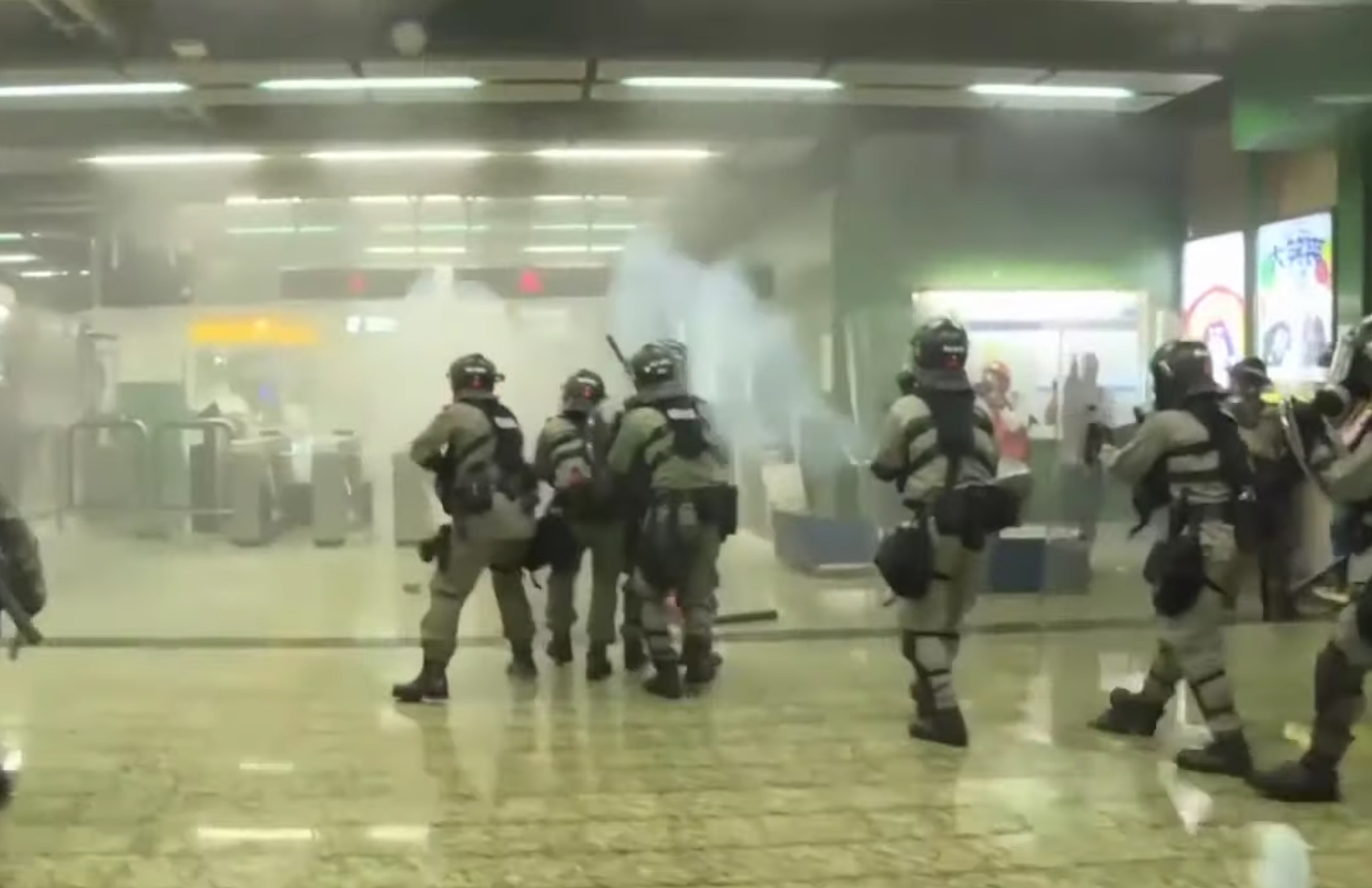The MTR Corp — finding itself taking fire from all sides over its unintentionally (and also, if you think about it, unavoidably) prominent role in Hong Kong’s long-running protest movement — has announced that it will begin closing stations immediately and without notice in the event of any violence or vandalism.
In a statement released last night, the railway operator said that “under safe circumstances,” they will continue to run trains to pick up passengers stranded in their stations by protest activity, but added that “if fights, vandalism or other acts of violence occur, under emergency situation, operation and train service at the stations concerned may be immediately stopped, and/or the station will be closed without prior notice.”
The announcement comes after Chinese state media piled onto the MTR yesterday, starting with the People’s Daily, the official newspaper of the Chinese Communist Party, publishing an article accusing the railway operator of “escorting the ‘Black shirts’ away,” and criticizing the company for allegedly “providing train services to rioters for free.”
“The Black shirts broke the law, yet they enjoy such privileges — what is the MTR doing? Many companies in Hong Kong, like the MTR Corp, face rioters with an ambiguous attitude, some even support them secretly. It is time they get their priorities straight!” the statement said.
Another Chinese state media outlet, CCTV, also published an article jumping down the MTR’s throat for arranging special trains to help protesters escape.
“They ignore their responsibilities in providing public transport services and affect the safety of passengers,” CCTV claimed in its statement.
State news wire Xinhua also got in on the act, releasing a video in the style of a fearmongering campaign ad — complete with melodramatic music — showing unruly protesters boarding MTR trains and concluding with the loaded question: “MTR. A means of public transport? Or an accomplice to rioters?”
MTR operates exclusive train for violent protesters in Hong Kong, and free of charge pic.twitter.com/SyjMQCRRCT
— China Xinhua News (@XHNews) August 22, 2019
The MTR Corp is a railway provider and listed real estate company that is 75 percent-owned by the Hong Kong government, but it also has extensive business interests on the mainland, providing rail services in Shenzhen, Beijing, and Hangzhou, and operating a real estate business in Tianjin.
The corporation has found itself in a delicate balancing act as Hong Kong’s summer of unrest has worn on, forced to cooperate with police requests to suspend services to stations located at protest hotspots, while also having to adjust its services to evacuate protesters who would otherwise be stranded in its stations.
In its statement, the MTR also indicated it was more than a little fed up with being repeatedly hounded by pro-democracy protesters, who have recently directed their rage at the railway operator for purportedly not doing enough to help protesters. Activists have accused the corporation of failing to protect protesters during a violent attack by pro-Beijing thugs at Yuen Long station last month, and for allowing police into stations, where they have fired tear gas and pepper balls in their pursuit of protesters.
Protesters have responded by staging protests and sit-ins at stations, harassing employees, disrupting train services on at least two occasions, and vandalizing MTR facilities.
The MTR is just the latest high-profile Hong Kong business to come under fire from Beijing. Cathay Pacific — whose business is also closely tied up with the mainland — was slapped with new regulations by China’s aviation regulator forbidding flight crew who had participated in protests from working flights passing through mainland airspace.
In response, the airline warned its staff they could be fired for taking part in “illegal” protests, and terminated several staffers — including, reportedly, the head of its flight attendants union.
The airline’s CEO and another senior executive also resigned amid the turmoil, and the airline in recent days has again warned staff that their social media accounts could be scrutinized for any posts appearing to support the protest movement.
The upheaval at the airline brought on by mainland meddling has prompted some to ask government officials whether Hong Kong can maintain its much-vaunted reputation as one of the top cities in the world for doing business.





Reader Interactions